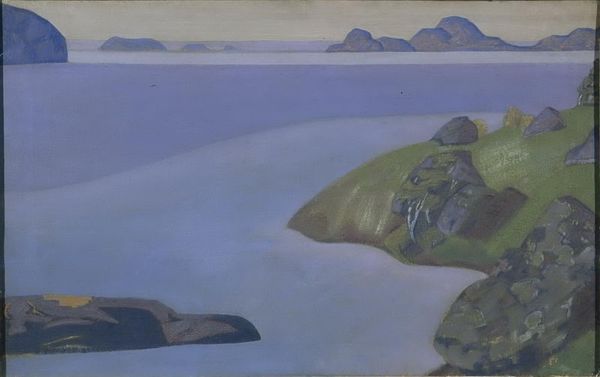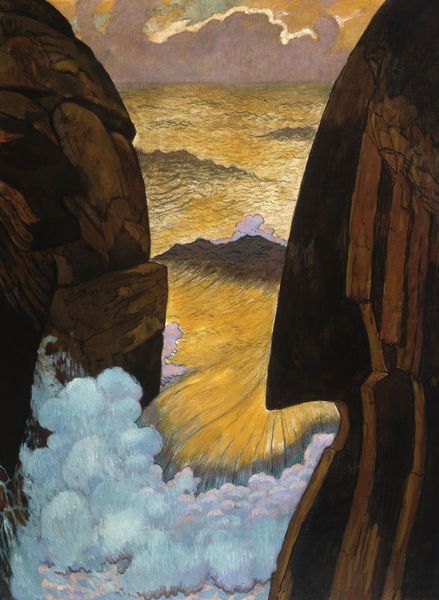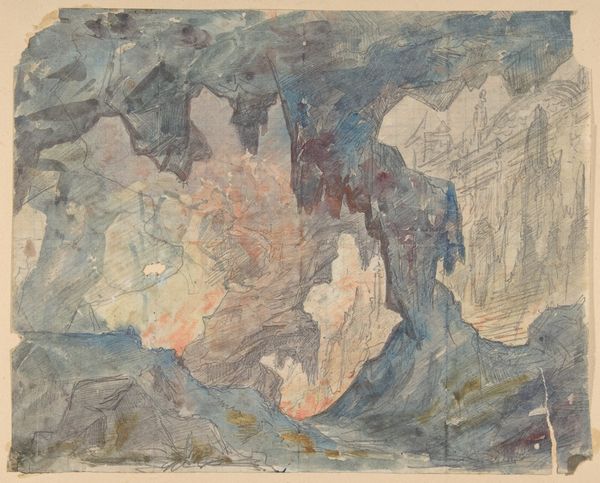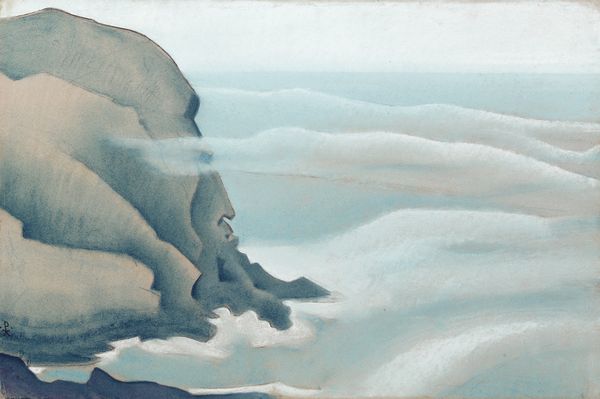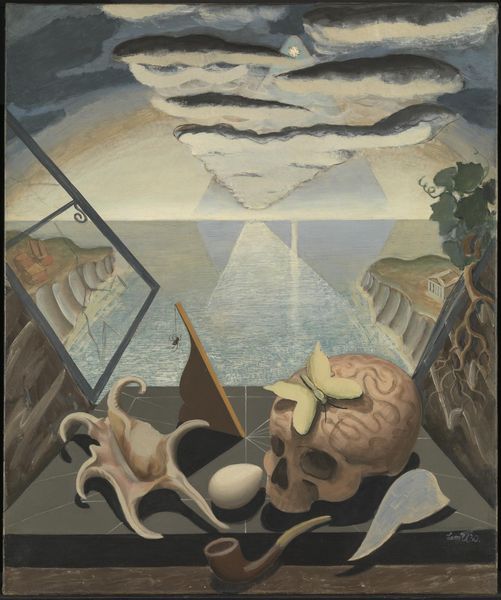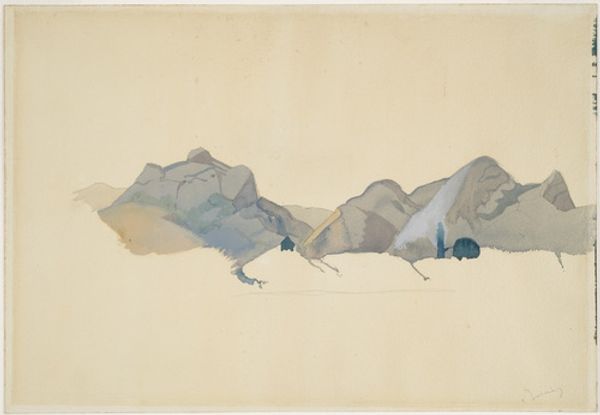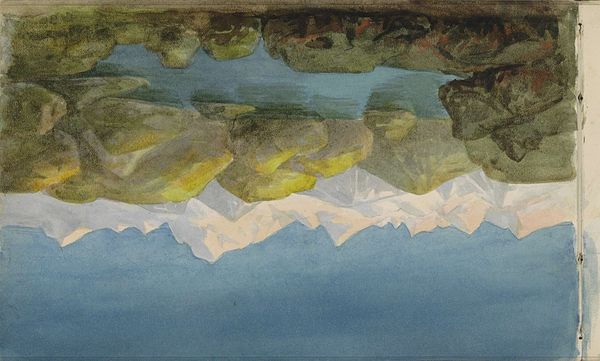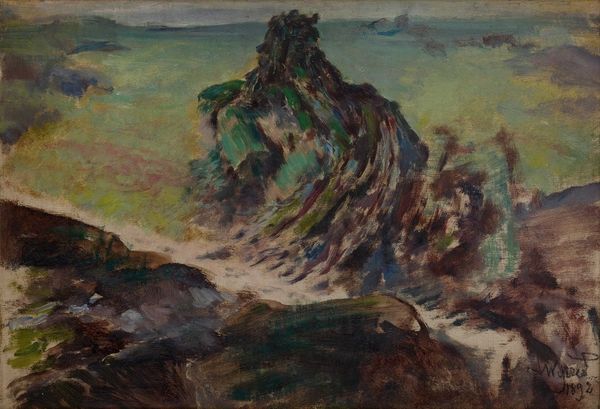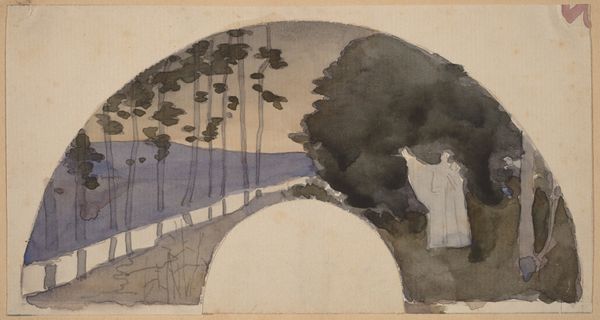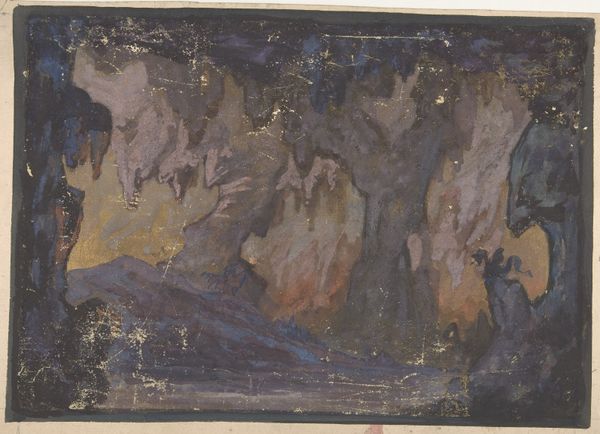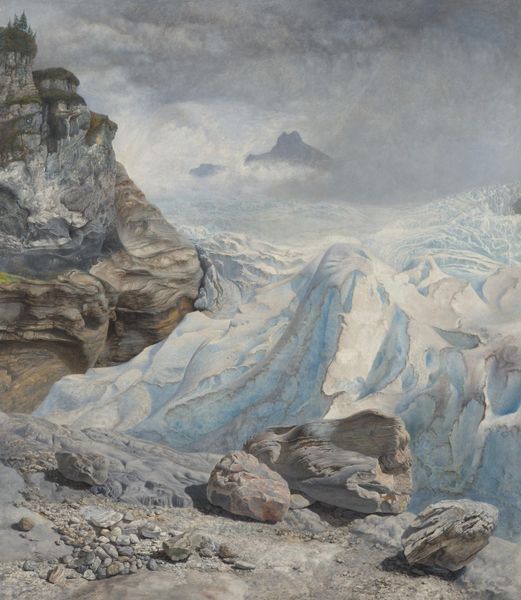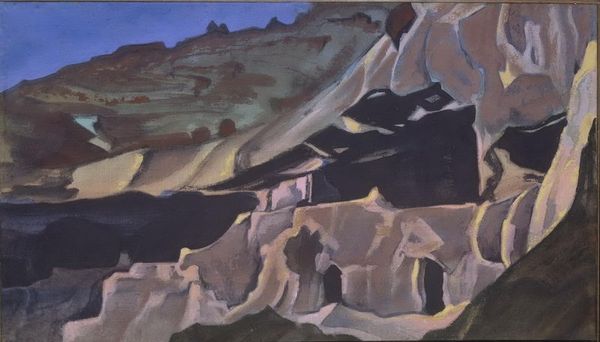
Dimensions: support: 775 x 724 mm frame: 1150 x 1130 x 115 mm
Copyright: © Tate | CC-BY-NC-ND 4.0 DEED, Photo: Tate
Curator: Thomas Lowinsky, born in 1892, painted this intriguing piece, "The Dawn of Venus," now residing here at the Tate. Editor: It’s arresting, this contrast of the smooth shell and Venus’s delicate form against the rugged rocks. There is a dreamlike quality to the scene. Curator: Indeed. Lowinsky was part of an artistic circle grappling with the aftermath of war, seeking solace in classical themes and mythology. It's a reimagining of Botticelli, but filtered through a very different lens. Editor: The composition is fascinating. The shell is centrally located, but the imposing rocks on either side create a sense of enclosure. Almost like she is trapped within her own genesis. Curator: I think that is a very astute observation. The piece was created in an era that witnessed significant shifts in the socio-political role of women. Do you think this reflects a broader societal ambivalence toward female liberation? Editor: Perhaps. Or maybe the painting is just reflecting the artist's internal world. It's difficult to say. Regardless, the painting clearly shows how the old myths continue to speak to the modern world.
Comments
tate 7 months ago
⋮
http://www.tate.org.uk/art/artworks/lowinsky-the-dawn-of-venus-n05226
Join the conversation
Join millions of artists and users on Artera today and experience the ultimate creative platform.
tate 7 months ago
⋮
Lowinsky studied at the Slade School of Art, London and had his first solo exhibition at the Leicester Galleries, London, in 1926. He liked to paint very detailed imaginative compositions inspired by the Bible or classical mythology, of which this is a major example. In Renaissance paintings Venus is usually depicted rising naked and triumphant from a large sea-shell floating on the surface of the sea. Instead, Lowinsky has decided to portray Venus in a rather withdrawn mood, seated within a large shell, which appears to be resting on the sea floor. Gallery label, September 2004
